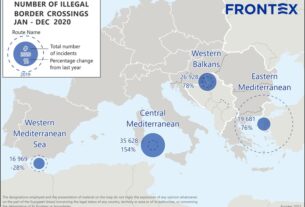Officials of the Council of Europe marked Roma Holocaust Memorial Day on Monday.
Secretary-General Marija Pejčinović Burić said in a statement that the anniversary should serve as a reminder to fight against present-day discrimination against the Roma, noting the spread of hate speech on social media as well as the intimidation that Roma citizens often have to face. The CoE regards the fight against discrimination as a priority, she said, calling for Roma history to be included in school curriculums and for Roma art, music and traditions to be promoted in schools.
Harry Alex Rusz, Hungary’s permanent representative to the Council of Europe, said in a separate statement that the Memorial Day served as a way to highlight the horrors caused by racism, xenophobia and intolerance. The Hungarian presidency of the Council of Europe sees promoting social inclusion and improving the opportunities for Roma citizens as a priority, he said.
August 2 was named international day of the Roma Holocaust in 1972. Over 3,000 Roma prisoners killed that night in Auschwitz in 1944 are commemorated on that day. About 500,000 Roma are estimated to have been killed in Nazi camps, 23,000 of them in Auschwitz-Birkenau.
Meanwhile, an open-air interactive exhibition dubbed Words that Resulted in Action that commemorates victims of the Roma Holocaust, opened in central Budapest’s Egyetem Square on Monday. Organised by the international student organisation Phiren Amenca Network, the Uccu Roma Informal Education Foundation, RomNet and the Civil Council Association, the exhibition presents the events that led to the Roma Holocaust, the international director of Phiren Amenca said at the opening event. “It all started with words,” Marietta Herfort said. “The words resulted in laws and then those, freely interpreted, resulted in action … which brought about the darkest era of European history,” she said.
hungarymatters.hu
pixabay

















